简体中文
繁體中文
English
Pусский
日本語
ภาษาไทย
Tiếng Việt
Bahasa Indonesia
Español
हिन्दी
Filippiiniläinen
Français
Deutsch
Português
Türkçe
한국어
العربية
Are You Self-Sabotaging Your Trades?
Abstract:While many traders enter the market with dreams of financial freedom and substantial profits, they often find themselves facing significant losses instead. A common, yet under-discussed, factor behind these losses is self-sabotage.
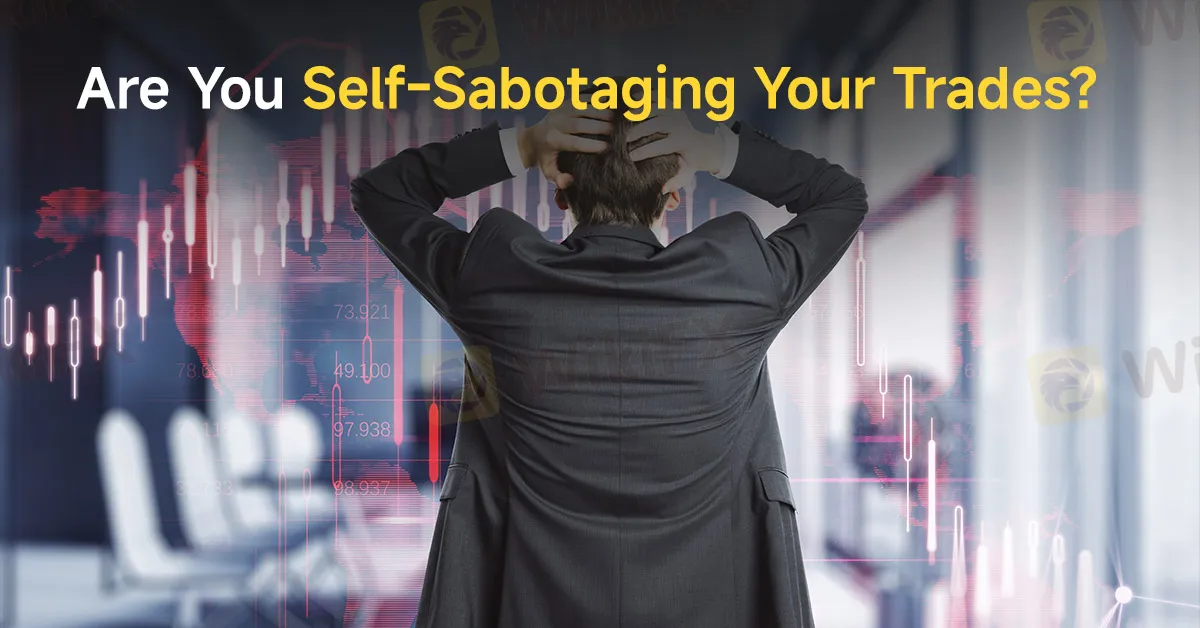
In the high-stakes world of online trading, success often hinges not just on market knowledge and technical skills, but also on the psychological resilience and discipline of the trader. While many traders enter the market with dreams of financial freedom and substantial profits, they often find themselves facing significant losses instead. A common, yet under-discussed, factor behind these losses is self-sabotage. Understanding the ways traders undermine their own success is crucial for anyone looking to navigate the markets successfully.

Emotions are the arch-enemy of rational trading. Fear and greed are the most common culprits. Fear can paralyze a trader, preventing them from executing well-planned trades, or it can force them to close positions prematurely, missing out on potential profits. On the other hand, greed can push traders to hold onto winning trades for too long, waiting for that extra pip that never comes, or to over-leverage their positions in the hope of outsized gains. This emotional rollercoaster often leads to poor decision-making and significant losses.

A surprising number of traders dive into the markets without a well-thought-out trading plan. A trading plan outlines the strategy, risk management rules, and goals of the trader. Without it, trades are often executed based on whims or gut feelings rather than sound analysis. This haphazard approach almost always ends in disaster. A solid trading plan is a traders roadmap, helping to maintain discipline and consistency, two key components of long-term success.

Overtrading is another common form of self-sabotage. Driven by the excitement of the market or the desire to recoup losses quickly, traders often execute too many trades. This not only increases transaction costs but also leads to less careful analysis and poorer trade quality. Overtrading can rapidly deplete a trading account, turning a promising trader into a frustrated one.
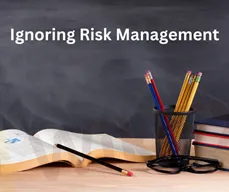
Risk management is often the first casualty of overconfidence. Traders may neglect to set stop-loss orders or may risk too much of their capital on a single trade. This lack of risk management can lead to catastrophic losses. Effective risk management involves setting stop-loss levels, diversifying trades, and never risking more than a small percentage of one‘s trading capital on any single trade. It’s the safety net that can keep traders afloat during rough market conditions.

The temptation to recover losses by increasing trade size or frequency is a classic self-sabotage move. This is often referred to as “revenge trading.” After a losing streak, the emotional toll can lead traders to make irrational decisions, hoping to quickly recover their losses. This usually results in even greater losses and a downward spiral that can be difficult to escape.

After a series of successful trades, traders can become overconfident, believing they have mastered the market. This overconfidence can lead to larger, riskier trades, and a disregard for market analysis and risk management. The market has a way of humbling even the most confident traders, and those who do not respect its volatility often pay a hefty price.

Markets are dynamic and constantly evolving. Strategies that work well in one market condition may fail miserably in another. Traders who are unwilling or unable to adapt their strategies in response to changing market conditions often find themselves on the losing end. Continuous learning and flexibility are essential traits for long-term success in trading.
In summary, self-sabotage in trading is a significant barrier to success, but it can be mitigated through awareness and disciplined practices. Emotional control, adherence to a trading plan, risk management, and the ability to adapt are crucial elements that distinguish successful traders from those who continually struggle. By recognizing and addressing these self-destructive behaviours, traders can improve their chances of achieving their financial goals and navigating the complex world of online trading with greater confidence and success.

Disclaimer:
The views in this article only represent the author's personal views, and do not constitute investment advice on this platform. This platform does not guarantee the accuracy, completeness and timeliness of the information in the article, and will not be liable for any loss caused by the use of or reliance on the information in the article.
Read more
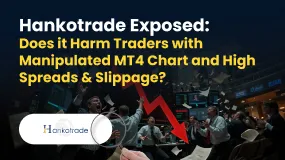
Hankotrade Exposed: Does it Harm Traders with Manipulated MT4 Chart and High Spreads & Slippage?
Have you witnessed a manipulated MT4 chart on Hankotrade login, showing inaccurate trading figures? Have you been victimized by high swap fees, inflated spreads, and massive slippage? Is the payment processing time too long at Hankotrade? Do you face downtime issues, especially when the New York trading session is on? These are some top complaints against the Belize-based forex broker. In this article, we have shared these complaints. Take a look!
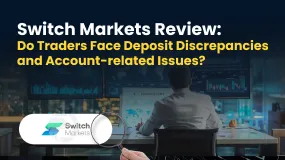
Switch Markets Review: Do Traders Face Deposit Discrepancies and Account-related Issues?
Do you fail to deposit your funds into the Switch Markets forex trading account? Earned profits, withdrew them too, but did Switch Markets block your deposits? Wanted to close your trading account due to payment-related issues, but in turn got your emails blocked by the Australia-based forex broker? Faced a negative trading account balance because of illegitimate trade order execution? Many traders have shared these stories about Switch Markets on broker review platforms. In this Switch Markets review article, we have mentioned the same. Read on!
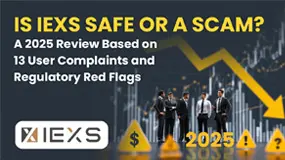
Is IEXS Safe or a Scam? A 2025 Review Based on 13 User Complaints and Regulatory Red Flags
You're asking a direct and important question: Is IEXS safe or a scam? As someone who might trade with them or already does, this is the most important research you can do. While IEXS says it is a global broker with over ten years of experience, a detailed look at its regulatory status and many user reviews shows serious warning signs that cannot be ignored. The evidence suggests a high-risk situation for traders' capital. This review will examine the available information, from official regulatory warnings to concerning first-hand user complaints, to give you a clear and fact-based view of the risks involved in trading with IEXS. Our goal is to give you the facts you need to make a smart decision.

Having Trouble Getting Your Funds Out of IEXS? A Simple Guide to Delays and Solutions
Are you having trouble withdrawing funds from your IEXS account or facing delays getting your funds? Not being able to access your own capital is one of the most stressful situations any trader can face. It breaks down your basic trust with a broker. This isn't just annoying - it's a serious problem that can mess up your financial plans and cause a lot of worry. This guide goes beyond basic advice. We'll look at real user experiences and official regulatory information to give you clear answers. Our goal is to help you understand why IEXS withdrawal problems happen and show you practical steps you can take. We understand your concerns and want to give you the information you need to handle this tough situation.
WikiFX Broker
Latest News
150 Years Of Data Destroy Democrat Dogma On Tariffs: Fed Study Finds They Lower, Not Raise, Inflation
FIBO Group Ltd Review 2025: Find out whether FIBO Group Is Legit or Scam?
Is INGOT Brokers Safe or Scam? Critical 2025 Safety Review & Red Flags
Trillium Financial Broker Exposed: Top Reasons Why Traders are Losing Trust Here
Amillex Withdrawal Problems
IEXS Review 2025: A Complete Expert Analysis
IEXS Regulation: A Complete Guide to Its Licenses and Safety Warnings
Oil and gas giant Wood plc sold to Dubai engineering firm
FONDEX Review: Do Traders Really Face Inflated Spreads & Withdrawal Issues?
【WikiEXPO Global Expert Interviews】Ashish Kumar Singh: Building a Responsible and Interoperable Web3
Currency Calculator




